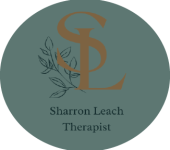Childhood Trauma
Childhood trauma can have profound and long-lasting effects on your physical, emotional, and psychological well-being. Some traumatic experiences during childhood are more obvious than others such as physical abuse, neglect, witnessing violence, or experiencing a significant loss. The less obvious traumas include things like emotional abuse, shaming, manipulating, abandonment, controlling and blaming you. These experiences will shape your development and impact your functioning in various ways as you grow into adulthood.
Emotionally, childhood trauma can lead to a range of difficulties. If you have experienced trauma you may struggle with regulating your emotions, experiencing intense and unpredictable mood swings. You may also have difficulty trusting others, forming and maintaining healthy relationships, and may exhibit symptoms of anxiety, depression, or post-traumatic stress. Additionally, trauma can affect your self-esteem and self-worth, leading to feelings of shame, guilt, or a distorted sense of identity.
Cognitively, childhood trauma can impact your ability to concentrate, learn, and process information. It may hinder your academic or professional achievements and contribute to difficulties with memory and attention. Trauma can also affect your beliefs and perceptions about yourself, others, and the world, leading to negative or distorted thinking patterns.
Physically, childhood trauma can have a significant impact on your health. You may experience a range of physical symptoms, including head -aches, chronic pain, gastrointestinal issues, and sleep disturbances. The long-term effects of trauma on the body can contribute to the development of chronic health conditions and a weakened immune system.
Furthermore, childhood trauma can influence your behaviour and coping mechanisms. You may engage in self-destructive behaviours such as substance abuse, self-harm, or risky sexual behaviours as a way to cope with the pain and distress associated with your traumatic experiences. Or you may withdraw from social interactions, isolate yourself, or exhibit aggressive or impulsive behaviours.
It is important to recognize that the effects of childhood trauma are complex and can vary from person to person. However, seeking professional help can provide a safe and supportive space for you to process your trauma, develop healthy coping strategies, and work towards healing and recovery.
FAQ
What is therapy?
Therapy, also known as counseling or psychotherapy, is a professional relationship between a trained therapist and a client. Its goal is to help individuals overcome emotional or psychological difficulties, make positive changes in their lives.
Why should I consider therapy?
Therapy can be beneficial for various reasons, including managing mental health issues (like depression or anxiety), coping with life changes, improving relationships, and personal growth.
What happens in a therapy session?
Therapy sessions typically involve talking to the therapist about your concerns, feelings, and thoughts. The therapist may ask questions, provide insights, and suggest strategies for addressing your issues.
How long does therapy take?
The duration of therapy varies depending on individual needs and goals. Some people benefit from short-term therapy, while others may engage in therapy for several months or even years.
Is therapy confidential?
Yes, therapy is generally confidential. Therapists are bound by ethical guidelines and legal obligations to keep the information shared during sessions private. However, there are some exceptions, such as if a client poses a risk to themselves or others.
Can I benefit from therapy even if I don't have a mental health diagnosis?
Yes, therapy can be beneficial for personal growth, self-improvement, and addressing everyday life challenges, even if you don’t have a diagnosed mental health condition.
Is therapy only for individuals, or can couples and families also benefit?
Therapy is available for individuals, couples, and families. Couples therapy and family therapy can help address relationship issues, communication problems, and family dynamics.
Can I combine therapy with other treatments, like medication?
Yes, therapy can be used in conjunction with other treatments, including medication. This is known as a holistic or integrative approach to mental health care.
Get In touch
07980 734410
available from 09:00 – 20:00
Email hello@sharronleachtherapist.co.uk

